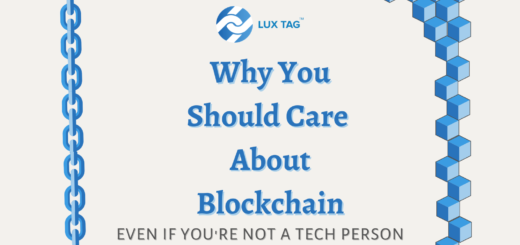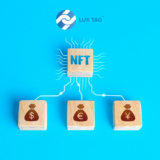What if The Food You Eat is Fake?
They have heard about fake cosmetics, fake bags, and fake medicines, but have they thought about fake food?
Recently on April 2021, a Malaysian influencer known as Khairul Aming discovered that his ‘sambal’ product was counterfeited. ‘Sambal’ is basically mashed or blended cillies, typically mixed with shallots or some other flavor-enhancing ingredients. It is a very common dish to be served alongside the main meals in Malaysia and Indonesia.
In this case, the ‘sambal’ was faked, not in terms of turning out to be something other than food. The buyers still get chilies in jars, but the buyers were tricked into believing that they purchased the ‘sambal’ produced by Khairul Aming.
Maybe a fake side dish doesn’t sound that bad, does it? However, do you know that even formula milk for babies also gets counterfeited? Imagine spending hours researching the product with the best ingredients to fit your baby’s needs, just to find out that they gave your vulnerable baby fake powder milk.
A Danish formula milk brand, Let’s Eco, uses BrandTag to ensure the customers receive genuine products.
What to Expect From Fake Food

The problem with fake food products is the fact that when they can lie about the brand, they can lie about practically anything, especially the ingredients, manufacturing process, and quality standards.
Let’s discuss the risks of consuming fake food products in detail.
1. Questionable Ingredients
Consumers would be lucky if the counterfeiter uses the same ingredients. If they do use the same raw materials, most likely cheaper and lower quality ones were chosen to get maximum profit.
The less preferable case is the counterfeiters replace the ingredients with synthetic colorings, flavorings, or powder to achieve a similar taste and texture to the original. In the worst-case scenario, they use illegal ingredients that may harm the consumers.
2. Unknown Quality Control
Sometimes, they buy a food product because of the guarantee of the cleanliness and quality control involved in the product’s makings, such as handled by workers who wear gloves, product sealing, and using filtered water.
As in Khairul Aming’s case, the product founder already guaranteed that all of his ‘sambals’ are freshly made every single day to ensure his customers get to enjoy his product for a long period. That was why one of the fake ‘sambal’ buyers was very disappointed to find the product he received in a stale, inedible condition.
3. Shady Halal Status
For Muslims, the Halal guarantee is very important, as it is related to their faith. Asking ‘is this product halal?’ will be the first thing in making a choice in food product purchase.
Basically, Halal refers to clean food that is not mixed with ingredients forbidden in Islam, typically swine or unslaughtered animals. Consuming non-Halal food is believed to contaminate and weaken the Muslim faith.
This is why any news on Halal fraud will cause outrage to Muslim consumers, such as the Halal meat cartel scandal discussed in BV@M’s Blockchain Awareness Program in which LuxTag participated.
4. Downgrading The Original Brand
Counterfeits may not only harm the consumers, but they also inflicted damage to the original brand’s reputation, especially if the consumers relate the bad quality of the fake products to the original Brand.
In fact, the original brand has to bear the loss of revenue that is supposed to come from the purchasers of the counterfeited products.
How to Avoid Fake Food

They can avoid consuming fake food products by being careful in your purchase:
- Always opt to buy from the official store or reseller listed by the brand’s website.
- Always compare the products you are buying with the product listed on the brand’s website.
- Check product packaging for silly errors, such as typos, misaligned, or weirdly proportioned visuals.
- Scan the barcode or QR code on the packaging to check its validity
They can also use BrandTag to check a product’s authenticity.
How to Protect Your Products from Counterfeiters
The responsibility of taking down counterfeiters does not fall onto the customer’s shoulders only. As a brand owner, they must take all precautions to discourage counterfeiters from aiming at their products.
1. Patent & Legal Register
This first step is the most crucial protection of their brand. No matter how popular they already are and how sophisticated their product packaging is, if their product is not yet patented, they cannot take any legal actions towards the people who counterfeit their product.
This was what MHAM experienced when their product went viral, whereby an entity started producing identical products then claimed MHAM as a counterfeit brand. The issue was only resolved once MHAM officially registered its product under the Malaysian Ministry of Health.
2. Product Citizenship
Product Citizenship is basically granting unique identities to their products with the implementation of smart packaging. Meanwhile, smart packaging is a packaging method to improve the quality of the contents or to enable interaction with the consumers. An example of a smartly packaged product is a product printed with a QR code.
This way, their customers can easily verify the authenticity of their products simply by scanning their packaging. They can give the identities by batch, type, or variations. However, the more specific it is, the more secure their products will be.
They can DIY their own smart packaging, Luxtag conducted a free webinar to demonstrate how they can do so! Learn about the webinar here.
3. Track & trace
Tracking and tracing their smartly packaged products will help them to efficiently notice any unusual activities that may indicate counterfeit activity, such as having one product ID be scanned more than a hundred times within a short duration or from random locations.
4. Make your customers aware of your smart packaging
Having smart packaging is pointless if nobody scans or realizes it. They can try these three simple tips to ensure the consumers scan their products: make it obvious, make it rewarding, and include reviews.
5. Raise counterfeit awareness
According to their survey, 4 out of 10 people bought counterfeits even though they know that they are purchasing fake products. That being said, there may be some people who admire their brand but opt to purchase the counterfeits due to the lower price.
Thus, they should make the effort to raise awareness on how counterfeit is harming the brand, the industry, and the growth of innovation.
An Anti-Counterfeit Solution for Both Consumer and Brands

BrandTag to the rescue! BrandTag is a Software-as-a-Solution (SaaS) that allows their products to announce authenticity through their smart packaging and protect themselves from being counterfeited.
As a brand owner, they will experience these things when they use BrandTag:
- Authenticity verification
All the customers have to do is scan the QR code! They don’t need to take a picture or inspect the products before emailing them to their to ensure the product’s authenticity. They will save a lot of resources on customer services!
- Real-time product insights
They will see real-time analysis of the scanning activities of their products, including frequency & location. They can use this information to tailor their marketing and focus on the preferences of those more popular places or products.
- Engage & Promote
They can include the product’s story, latest promotion, customer reward program, vouchers, and their 5-star ratings. The customers have no chance to hesitate in making a purchase!
- Customization & Consistency for Bulk ProductionThey
They decide what their customers will see. They can customize the color, theme, roduct image, and more so that they’ll suit their brand. Plus, they only have to do it once! While every single product has its own unique QR code, it’ll still maintain the same image that reflects a particular series or batch.
Let your product do the work for you.
Combating counterfeiters is exhausting. That’s why LuxTag developed BrandTag. With BrandTag, their products will promote authenticity and protect themselves from being counterfeited, with just a scan!











